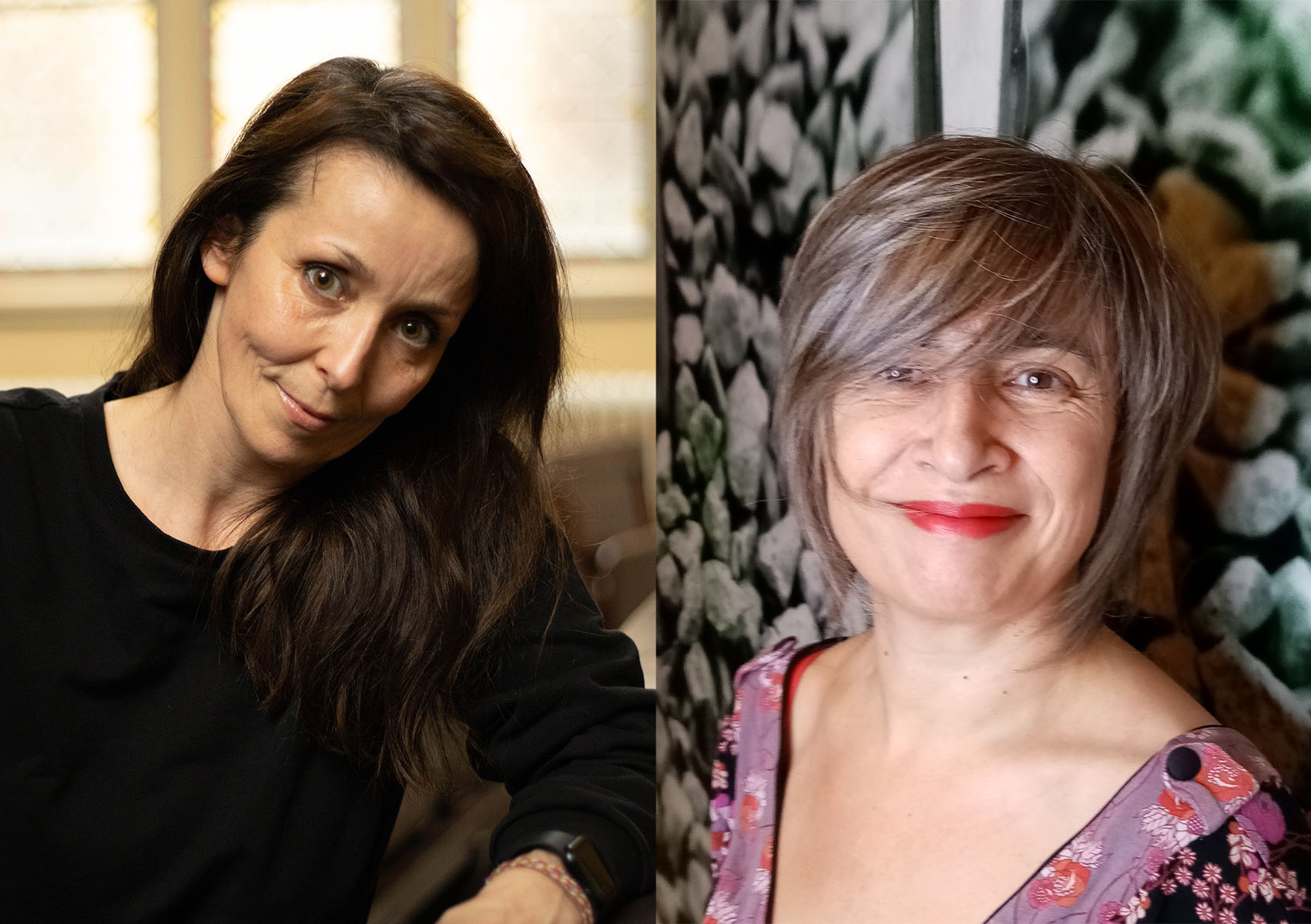Major European grant for Ana Guerberof Arenas and Tina Kretschmer

Ana Guerberof Arenas and Tina Kretschmer of the University of Groningen have been awarded an ERC Consolidator Grant. The European Research Council (ERC) awards these personal grants of €2 million to outstanding scientists. With these grants, the ERC stimulates groundbreaking research in Europe.
INCREC – Studying the creative translation process in the intersect with technology - Ana Guerberof Arenas
Ana Guerberof Arenas, assistant professor of Translation Studies at the Faculty of Arts, received the grant for the INCREC project that focuses on the creative translation process. AI and, more specifically, machine translation (MT) has drastically changed the public perception of translation and the possibilities of this technology. A remarkably high percentage of the content we read and see is translated, especially in our multilingual and global society. It is therefore crucial to look at the role that human creativity plays in understanding the possibilities, as well as the limitations machine translation in a literary and audio-visual content has.
The INCREC project aims to study the translator’s creative process and its impact on the users’ reception with various techniques, such as eye-tracking, retrospective think-aloud interviews, and questionnaires filled in by professional translators and users. The goal is to create a theoretical framework for understanding creativity, and to enhance technological use on current platforms, thus maintaining language integrity, job satisfaction, and user enjoyment.
About Dr Ana Guerberof Arenas
Ana Guerberof Arenas was a Marie Skłodowska Curie Research Fellow from 2020–2022. Her work focuses on translation technology, creativity in translation, and human-computer interaction. She has authored peer-reviewed articles and book chapters on machine translation post-editing, reading comprehension of MT output, new translator training, ethical considerations regarding MT, and creativity and reading reception of literary texts that were translated using different modalities. She has 23 years’ experience in the language industry in roles that ranged from translator to operations manager.
PAR2: A new science of parenthood: How does a person change when they become a parent? - Tina Kretschmer
Tina Kretschmer, associate professor of Pedagogical Sciences at the Faculty of Behavioural and Social Sciences has received the grant for the project PAR2: A new science of parenthood, which focuses on the question of how people change when they become parents. According to Kretschmer, scientists have hardly zoomed in on parenting as social behaviour and have largely ignored the transition to parenthood as a potential turning point in social development. Social development describes stability and changes in social skills–such as understanding and regulating one’s own emotions, being empathetic to others’ emotions–and social behaviour, i.e. any behaviour that affects another person. There is a lot of knowledge about social development in childhood and adolescence but little about what happens in adulthood.
The project uses TRAILS data that comprises the data of over 1500 young people who have been followed since age 11. They are now in their 30s and many–but certainly not all– of them have children, which offers the opportunity to explore differences in social skills and social behaviour between parents and nonparents. The project will also collect new data to look into how parents’ social networks influence their parenting styles, but also to elucidate the role of genetic influence and that of one’s developmental history, i.e. one’s own experiences during childhood and adolescence.
About Dr Tina Kretschmer
Tina Kretschmer studied at the Freie Universität Berlin and completed her PhD at the University of Sussex in Brighton (UK). She worked as a researcher at King’s College London, University Medical Center Groningen, and the Institute for Advanced Study in Berlin. In 2016, she started as assistant professor at the Faculty of Behavioural and Social Sciences at the University of Groningen. She chairs the research group Youth Studies at the Department of Pedagogical and Educational Sciences at this faculty. Her work focuses on environmental and genetic determinants of social development across the lifespan. She works with longitudinal, intergenerational, and genetically informed cohort data to understand why some children and adolescents thrive socially and others do not.
More information on the ERC
The ERC supports talented young researchers in setting up research teams and starting up independent research projects. The Consolidator Grants are open to mid-career academics of all nationalities. An ERC grant enables researchers to initiate daring, groundbreaking research projects and open up new avenues in their fields.
More news
-
18 November 2025
What about the wife beater? How language reinforces harmful ideas
-
03 November 2025
Menopause in perspective: How the media influences our perception
